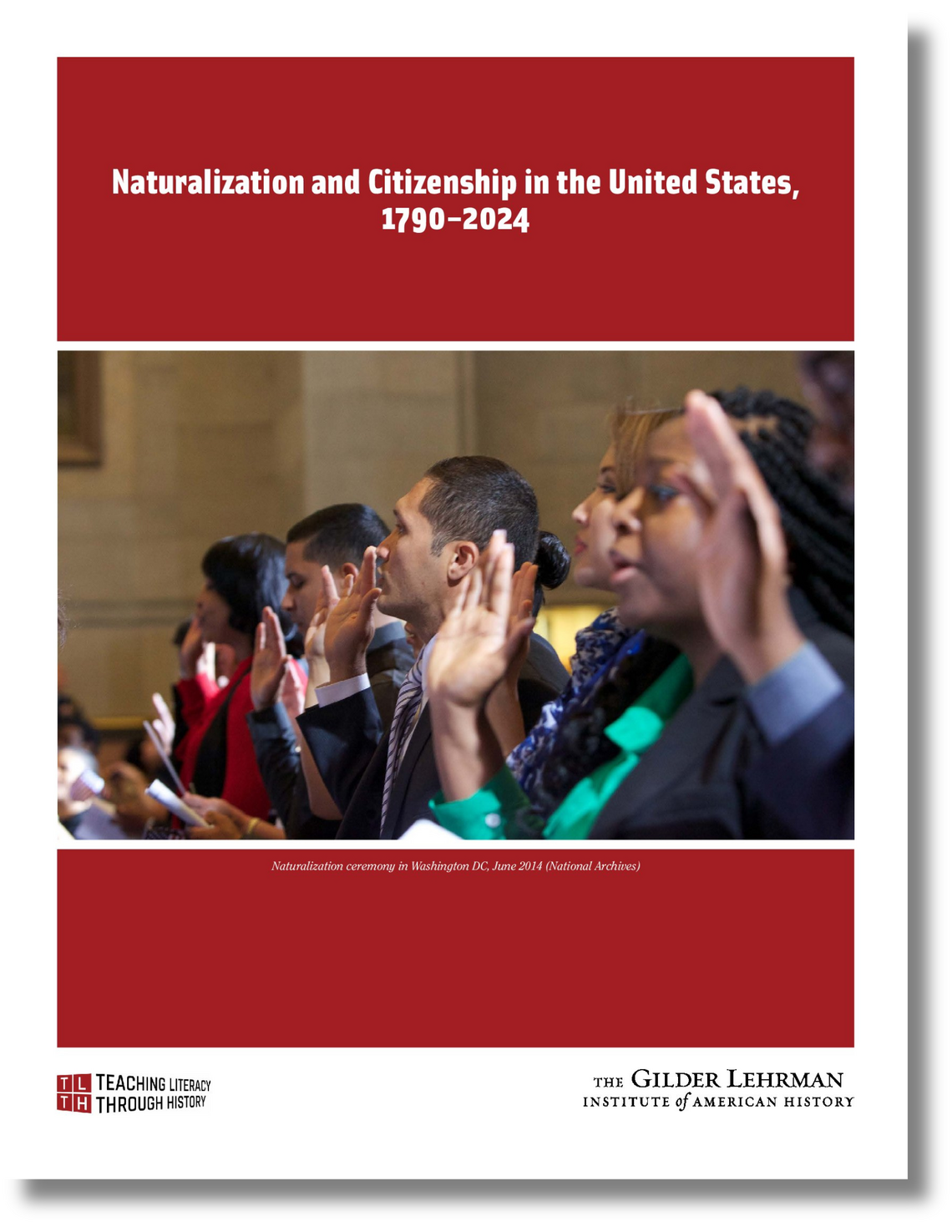Lesson by Misha Matsumoto Yee
Essay by Grace Peña Delgado, University of California, Santa Cruz
Grade Level: 7–12
Number of Class Periods: 5

The five lessons in this unit explore the history of how citizenship has been defined in the United States, particularly regarding naturalization and citizenship status. It also looks at the evolution of the naturalization process and its impact on American immigration. Students will examine and assess primary sources, including the US Constitution, the Treaty of Guadalupe Hidalgo, the American Indian Act of 1924, and various Immigration Acts. They will learn from naturalized citizens from the past as well as the present. You will assess students’ understanding through their participation in small-group and whole-class discussions and their written responses to the critical thinking questions and the essential questions.
Lesson Plan Author: Misha Matsumoto Yee
Historical Background Essay by: Grace Peña Delgado, University of California, Santa Cruz
CCSS.ELA-LITERACY.RH.6-8.1: Cite specific textual evidence to support analysis of primary and secondary sources.
CCSS.ELA-LITERACY.RH.6-8.2: Determine the central ideas or information of a primary or secondary source; provide an accurate summary of the source distinct from prior knowledge or opinions.
CCSS.ELA-LITERACY.RH.6-8.3: Identify key steps in a text’s description of a process related to history/social studies (e.g., how a bill becomes law, how interest rates are raised or lowered).
CCSS.ELA-LITERACY.RL.11-12.1: Cite strong and thorough textual evidence to support analysis of what the text says explicitly as well as inferences drawn from the text, including determining where the text leaves matters uncertain.
CCSS.ELA-LITERACY.SL.11-12.1: Initiate and participate effectively in a range of collaborative discussions (one-on-one, in groups, and teacher-led) with diverse partners on [grade-level] topics, texts, and issues, building on others’ ideas and expressing their own clearly and persuasively.
CCSS.ELA-LITERACY.W.9-10.1 and 11-12.1: Write arguments to support claims in an analysis of substantive topics or texts, using valid reasoning and relevant and sufficient evidence.
D1.4.6-8. Explain how the relationship between supporting questions and compelling questions is mutually reinforcing.
D2.His.1.6-8. Analyze connections among events and developments in broader historical contexts.
D2.His.6.6-8. Analyze how people’s perspectives influenced what information is available in the historical sources they created.
D1.5.9-12. Determine the kinds of sources that will be helpful in answering compelling and supporting questions, taking into consideration multiple points of view represented in the sources, the types of sources available, and the potential uses of the sources.
D2.Civ.3.9-12. Analyze the impact of constitutions, laws, treaties, and international agreements on the maintenance of national and international order.
D2.His.3.9-12. Use questions generated about individuals and groups to assess how the significance of their actions changes over time and is shaped by the historical context.
D3.3.9-12. Identify evidence that draws information directly and substantively from multiple sources to detect inconsistencies in evidence in order to revise or strengthen claims.
Who has been eligible for citizenship in different historical eras?
How has the naturalization process changed over time?
How have naturalized citizens described their experience with the process of naturalization?
What are the current requirements for naturalization?
The Treaty of Guadalupe Hidalgo, Articles VIII and IX, February 2, 1848
The Fourteenth Amendment to the US Constitution, Sections 1 and 5
Indian Citizenship Act of 1924
Naturalization Act of 1790
Naturalization Act of 1906
Expatriation Act, 1907
Petition of Naturalization for Harriot Stanton Blatch, 1911
Abwe Abedi, “I Can Help the Country as a Citizen,” The New Americans Campaign, May 2, 2024